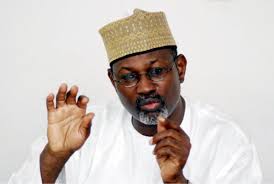Former Chairman of the Independent National Electoral Commission (INEC), Prof. Attahiru Jega, has cautioned the Nigerian government against fully embracing recommendations from Bretton Woods institutions, particularly the World Bank and the International Monetary Fund (IMF).
Speaking on Wednesday at the 2024 Annual Directors’ Conference, organized by the Chartered Institute of Directors (CIoD) Nigeria, Jega emphasized the need for caution in dealing with these financial institutions to avoid creating long-term problems.
The conference, themed “Good Governance as a Catalyst for Economic Recovery, Growth, and Development,” highlighted concerns over the perceived influence of these institutions on Nigeria’s economic policies. Jega stressed the importance of prioritizing and nurturing democratic governance instead of solely focusing on the good governance agenda promoted by organizations like the World Bank.
Thediscovererng.com reports that the World Bank and IMF have been linked to President Bola Tinubu’s current economic policies, notably the removal of fuel subsidies and the floating of the naira, which have contributed to inflationary pressures. However, during the IMF and World Bank Annual Meetings in Washington DC, the IMF’s African Region Director, Abebe Selassie, clarified that the decision to remove the fuel subsidy was solely Tinubu’s, noting that the IMF only engages in regular dialogue with countries, including Nigeria.
At the conference, Jega warned against accepting external recommendations without critical evaluation, saying, “While it is beneficial to engage with these institutions, we must not accept their advice wholesale. We should carefully assess the measures they suggest to avoid creating bigger problems in the medium and long term, even if short-term benefits seem promising.”
He called for reforms in the leadership recruitment process, pointing out that many of Nigeria’s leaders are ill-prepared for their roles. Jega urged Nigerians to pay attention to consolidating democratic governance to achieve “people-oriented development.”
The President and Chairman of the CIoD Council, Alhaji Tijjani Borodo, reiterated the institute’s commitment to promoting corporate governance and enhancing the professional capabilities of directors across sectors. He highlighted the CIoD’s mission to empower leaders to contribute meaningfully to their organizations and the nation while working with the government to shape business-friendly policies.
Mutiu Sunmonu, Chairman of the conference, emphasized the critical role of character in ensuring good governance and corporate practices. He urged parents to instill good values in their children, noting that without character, even the best rules and compliance frameworks would fail.
The conference brought together top leaders from various sectors to discuss the importance of governance, leadership, and sustainable development in Nigeria’s socio-economic recovery.



























